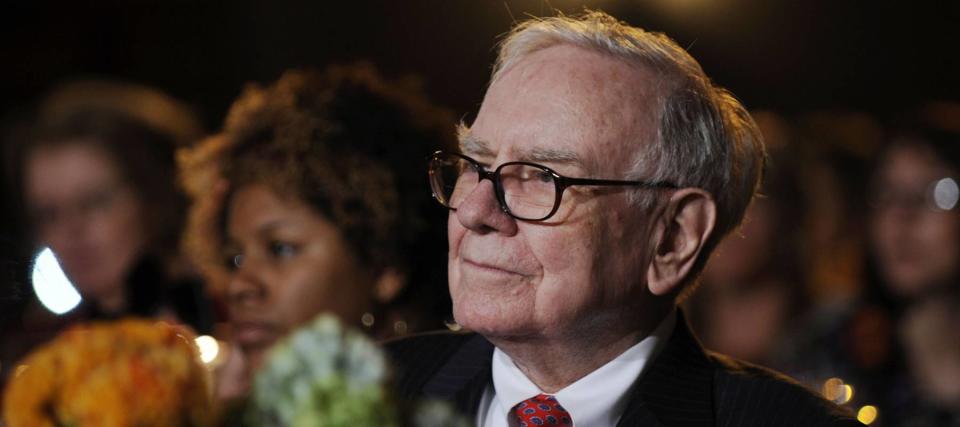Why Warren Buffett would never short a stock — and you shouldn't either

During the recent GameStop (GME) hullabaloo, America’s attention seemed to turn entirely to the stock market.
All over the country, people with no previous interest in trading suddenly knew the meaning of “short selling.”
But no crash course on the topic would be complete without the perspective of iconic billionaire investor Warren Buffett, who has made it clear over the years he’s no fan of short selling.
Read on to find out why Buffett has said that shorting is “the sort of thing that you can go broke doing” — and to learn about investing tools that will keep you from going broke.
Wait — I still don’t entirely understand short selling

Quick review: Shorting is a tactic available to investors who predict a stock’s price is about to drop. An investor borrows a quantity of shares through a broker and then sells them right away, intending to repurchase them later, at a lower price, and return them to the lender.
If the trade goes well, the investor gets to pocket the difference between the lower buy price and the higher sell price: Shorting a $10 stock that drops to $4 nets the investor the $6 spread, less the cost of borrowing the shares in the first place.
But these trades don’t always go well for the short side. Sometimes the price of the shorted stock goes up instead of down, forcing those who’d taken the negative position to hastily buy back shares at an inflated cost in order to cover their losses.
And as we saw with the GameStop short squeeze, that’s when things really go sideways.
So what’s Buffett’s take?

Warren Buffett would not have been surprised to learn that the short sellers who bet on GME’s decline saw billions in losses over the first few weeks of 2021.
Buffett is famous for taking the long view when it comes to investing, preferring undervalued, lower-profile stocks over those that rise and fall quickly because of intense media attention and hype.
He doesn’t deny that short selling can be profitable; he just can’t justify the practice for himself, since it offers limited gains and potentially unlimited losses.
‘It’s tempting’
Short selling has “ruined a lot of people,” he said in 2001 at the annual meeting of his company, Berkshire Hathaway. “It’s the sort of thing that you can go broke doing.”
“It’s tempting,” he continued. “You see way more stocks that are dramatically overvalued in your career than you will see stocks that are dramatically undervalued. … So you might think it’s easier to make money on short selling. And all I can say is, it hasn’t been for me.
It's 'very painful’
One of the main problems, Buffett said, is that short sellers are at the mercy of those with the power and influence to promote and inflate stocks (kind of like the Reddit posters in the GameStop example).
"It is a very, very tough business because of the fact that you face unlimited losses and because of the fact that people that have overvalued stocks — very overvalued stocks — are frequently on some scale between promoter and crook,” he said at the 2001 meeting.
“And they also know how to use that very valuation to bootstrap value into the business.”
And the short seller can run out of money before the stock’s promoters run out of ways to keep the price on the rise, Buffett said.
“It is very painful,” he said. “In my experience, it was a whole lot easier to make money on the long side.”
It's ‘just plain foolish’
Buffett has also expressed strong feelings on the question of “leverage” (“borrowed assets” for those who don’t speak finance), which is a necessary component of short selling, since the shares first need to be borrowed in order to be shorted.
In a Q&A with the University of Florida’s School of Business in 1998, Buffett weighed in on the then-recent demise of Long Term Capital Management (LTCM), a well-known and once highly successful hedge fund that boasted Nobel Prize winners among its founders.
The fund had come crashing down weeks earlier, in part because it had operated with too much leverage in making risky investments on volatile foreign currencies and bonds.
‘“To make money they didn’t have and didn’t need, they risked what they did have and did need,” Buffett told the audience. “That is foolish. That is just plain foolish. It doesn’t make any difference what your IQ is. If you risk something that is important to you for something that is unimportant to you it just does not make any sense.”
What should I do instead?

Given Buffett’s public distaste for chasing quick gains, it’s understandable why he avoids short-selling.
In the same Q&A at the University of Florida, Buffett laid out his stance with a very clear metaphor:
“If you hand me a gun with a million chambers in it, and there’s one bullet in a chamber and you said, ‘Put it up to your temple. How much do you want to be paid to pull it once,’ I’m not going to pull it. You can name any sum you want, but it doesn’t do anything for me on the upside and I think the downside is fairly clear. So I’m not interested in that kind of game.”
Buffett’s strategy has long been that slow and steady wins the race. Clearly, as a billionaire investor, it’s been working well for him all these years.
And you’ve got an advantage Buffett didn’t have back when he started investing in 1942: technology.
Today's budding investors have all kinds of investing apps to choose from, all of them offering you the opportunity to grow your money gradually without the steep risks of short selling.
And you don’t even need full dollars to get your money working for you. With a micro-investing app, your debit or credit card purchases can rounded be up to the nearest dollar so that the spare change can be invested for you — while you do nothing but watch your account grow.
It may sound alarmingly simple. But that’s the key. As Buffett once said, “The great moves are usually greeted by yawns.”

 Yahoo Finance
Yahoo Finance 